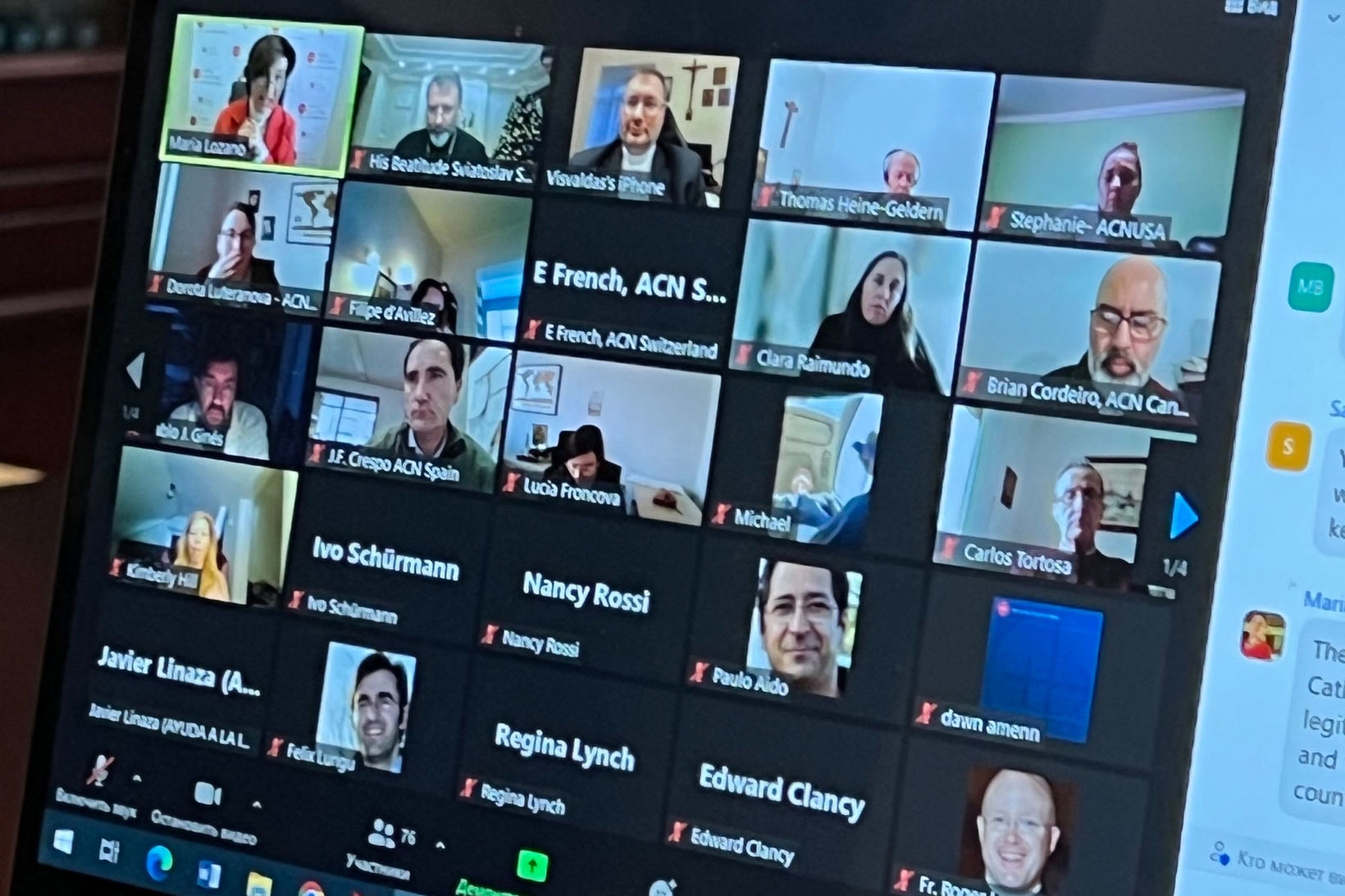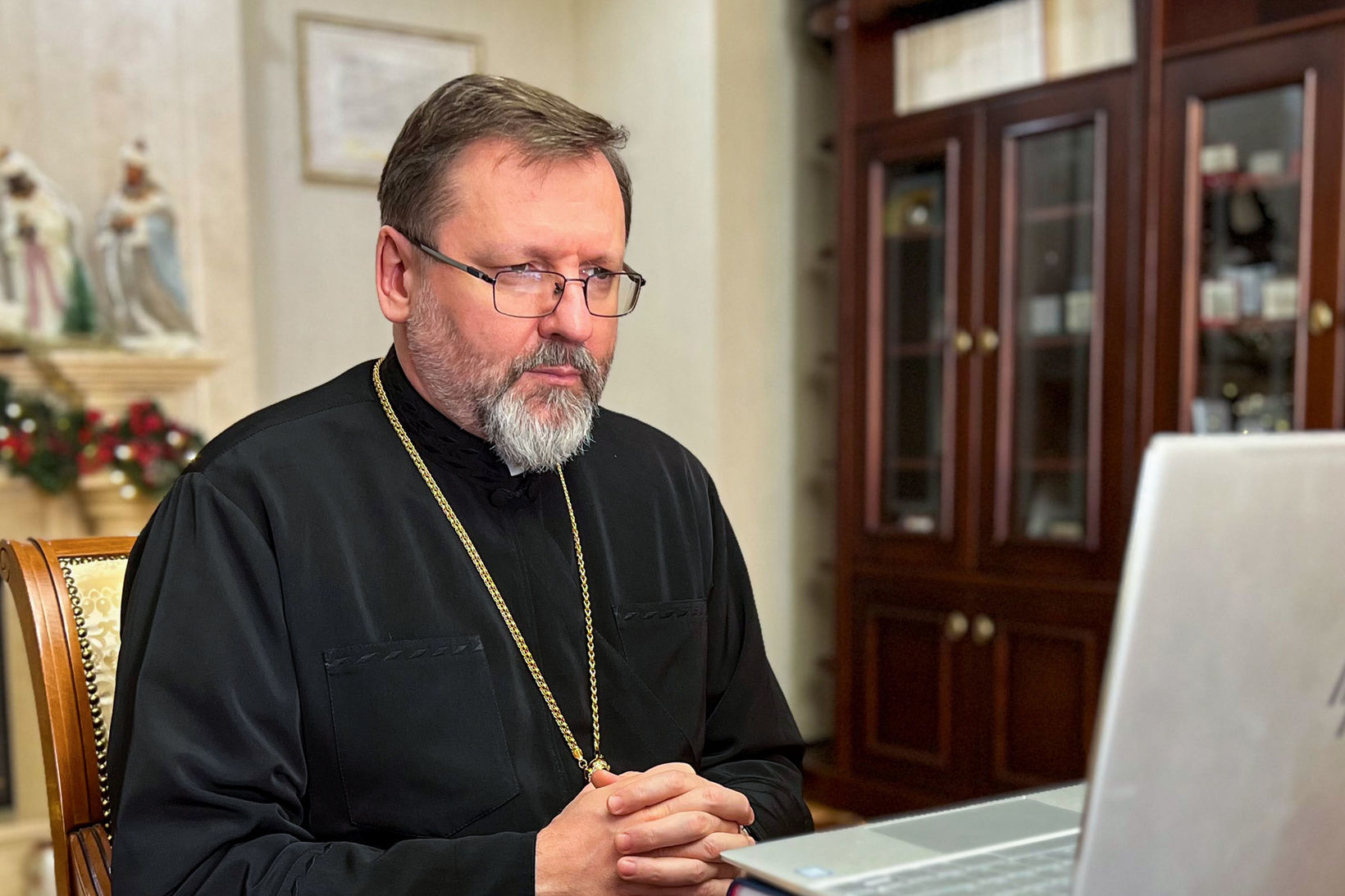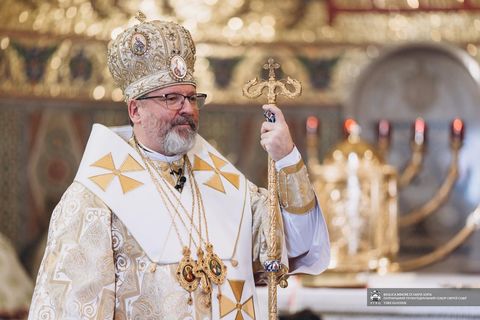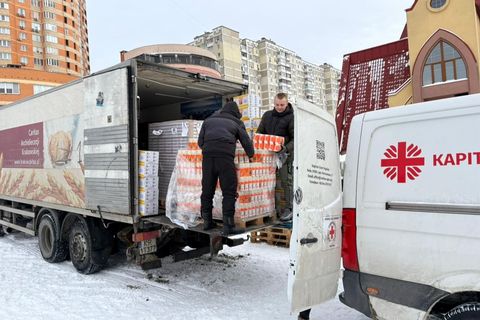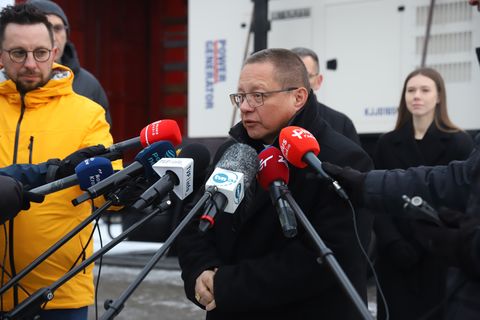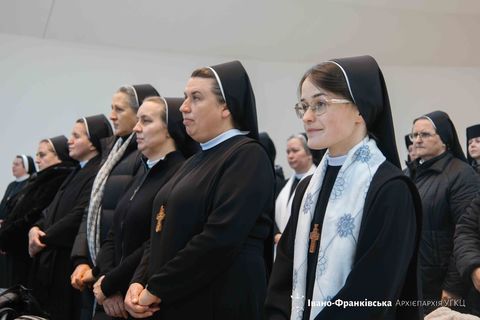“We tried not just to survive, but also to serve,” — Head of the UGCC on a year of living in dramatic circumstances of war
The day before the anniversary of Russia’s full-scale invasion of Ukraine, His Beatitude Sviatoslav, Father and Head of the UGCC, told more than 70 participants of the international online conference “February 24: Surviving in Ukraine after a year of full-scale war” how society in general and the Church, in particular, are confronting the military situation in Ukraine. The Apostolic Nuncio to Ukraine, Visvaldas Kulbokas, also took part in the conference organized by the International Fund Aid to the Church in Need (ACN) on Wednesday, February 8.
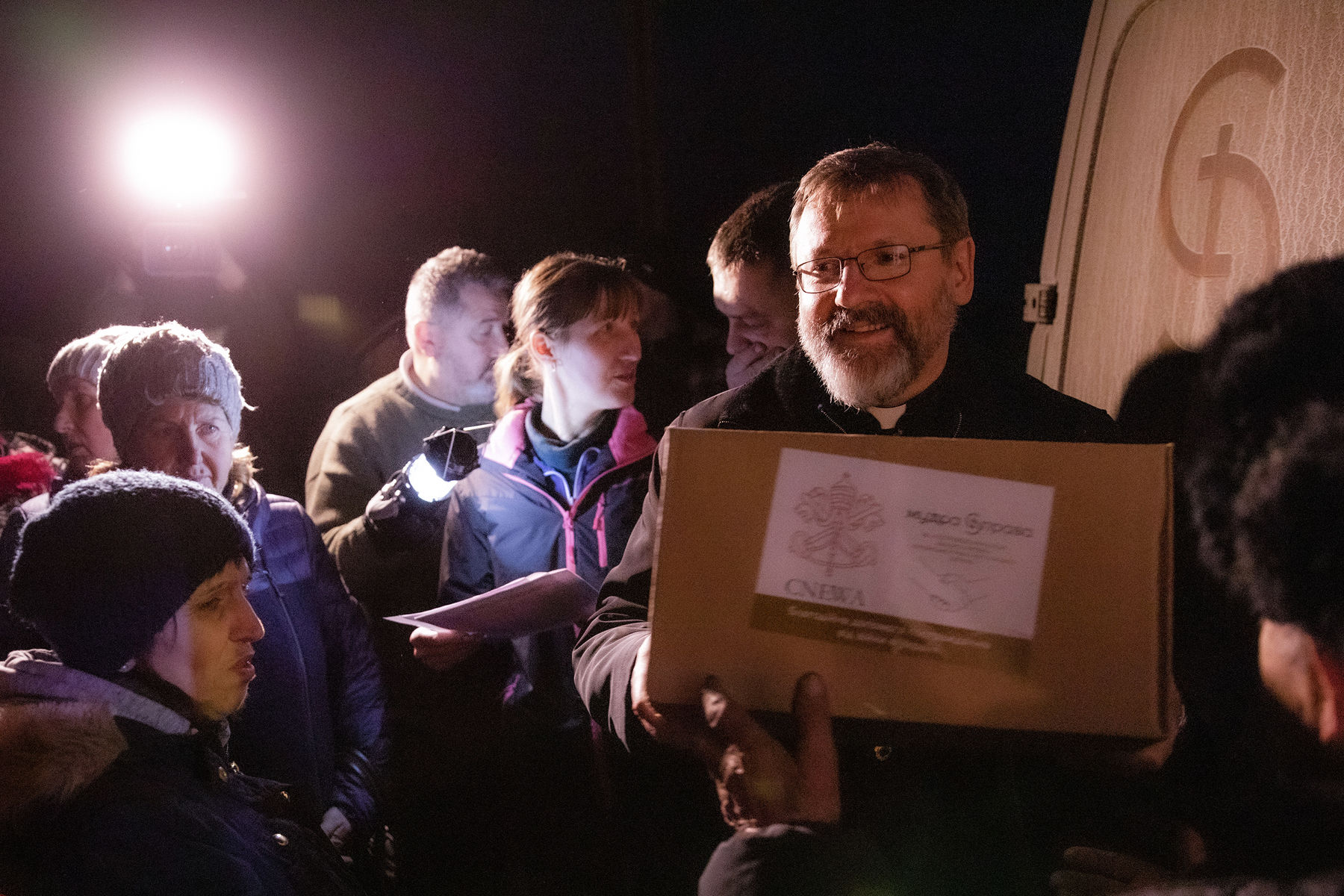
To the moderator’s opening question: “How did you survive in the dramatic circumstances of the war almost a year after the full-scale invasion?” His Beatitude Sviatoslav answered concisely: “I don’t know how. It is a miracle that we are still alive. But we tried not just to survive but also to serve,” he added. “Ordinary people, victims of this war, were ministering through the global Christian solidarity. Since so many good people worldwide are united with us in prayer, thoughts, and generosity to help us in such a difficult situation.”
The Head of the UGCC said that Ukraine’s humanitarian situation was deteriorating a year after the war outbreak. About 15 million Ukrainians were forced to flee their homes, almost 7 million went abroad, and “we are very grateful to European countries for accepting Ukrainian refugees.” Millions have become internally displaced. And many people who return to their homes in the de-occupied territories do not have electricity, heating, or the essentials to survive.
At the same time, Russia continues to obliterate critical infrastructure in Ukrainian cities methodically. As of now, 50 % of Ukraine’s power grids have been destroyed, and “darkness is now a common phenomenon in every city and village of Ukraine, not only in the East.”
“Thanks be to God, we managed to combat this humanitarian crisis, and no one died of hunger or cold in Ukraine,” said His Beatitude Sviatoslav.
“Nevertheless,” he continued, “we do not know what to expect soon because we receive sad news from the front line that Russia is complicating the situation. Constant bombing in many regions is a daily reality.”
Regarding the Church’s ministry in times of war, the Primate spoke about the pastoral plan until 2030, “The Hope to which the Lord Calls Us,” adopted at the Synod of Bishops of the UGCC in July last year. “We, as a church, are trying to give people hope, to help them survive, to find inner strength and resilience to fight, to find sense in meaningless situations. We often hear that our people expect from the Church not only food and clothing but also words of hope. Therefore, pastoral care for people is the number one priority.”
In this pastoral ministry of the Church, according to His Beatitude Sviatoslav, the priority is the healing of human wounds caused by the war. “Almost 80 % of people in Ukraine need rehabilitation to a greater or lesser extent to overcome trauma — psychological, physical or other,” he explained and added that the Synod of Bishops of the UGCC in Ukraine, which took place on February 1–2, 2023, adopted a different strategy for the development of pastoral care for healing the wounds of war. The Church will also cooperate with the state in this area.
Another priority is supporting the UGCC structures’ institutional capacity because, as the Primate noted, “we can be more effective when we work as a well-structured community.”
“It is also vital for us to help our parishes, which have become centers of humanitarian aid in the center and east of Ukraine. We are very active in those parts of the country that are mostly destroyed due to hostilities,” said His Beatitude Sviatoslav. He added: “We must also cooperate with our communities and priests who remained in the occupied territory.”
The Head of the UGCC thanked the journalists, benefactors, and all the conference participants for their awareness and urged them not to forget about Ukraine.
After the speech by the Apostolic Nuncio to Ukraine Visvaldas Kulbokas, journalists asked the hierarchs about the Church’s participation in releasing prisoners, interfaith and interreligious relations in Ukraine, relations between Caritas structures in Ukraine and Russia, the calendar reform of the UGCC in Ukraine, etc.
The UGCC Department for Information
